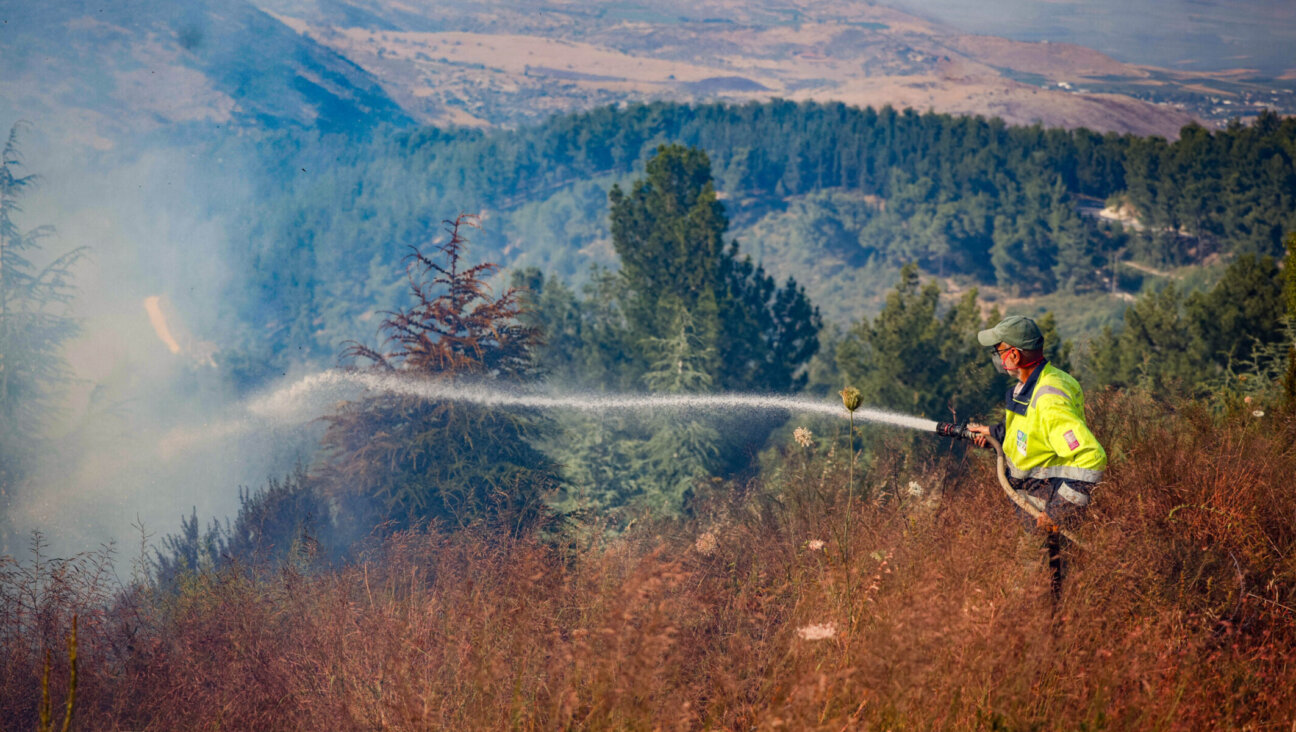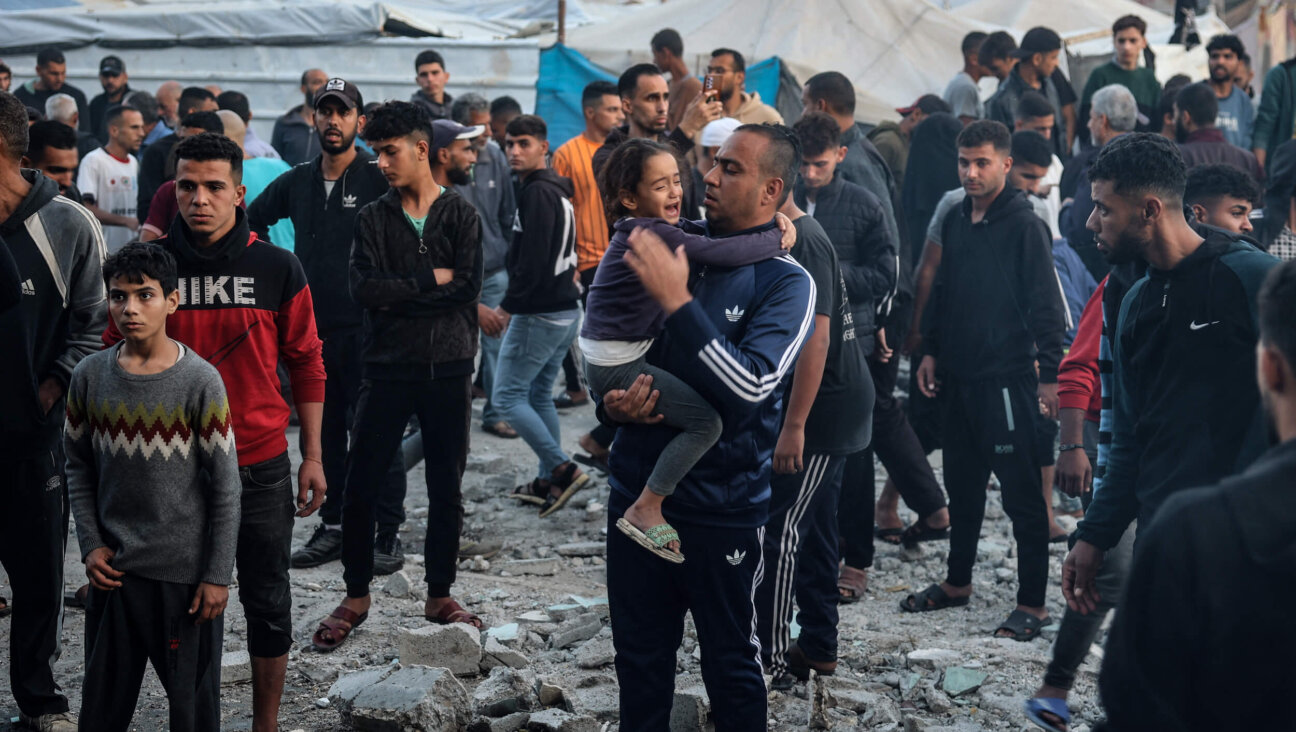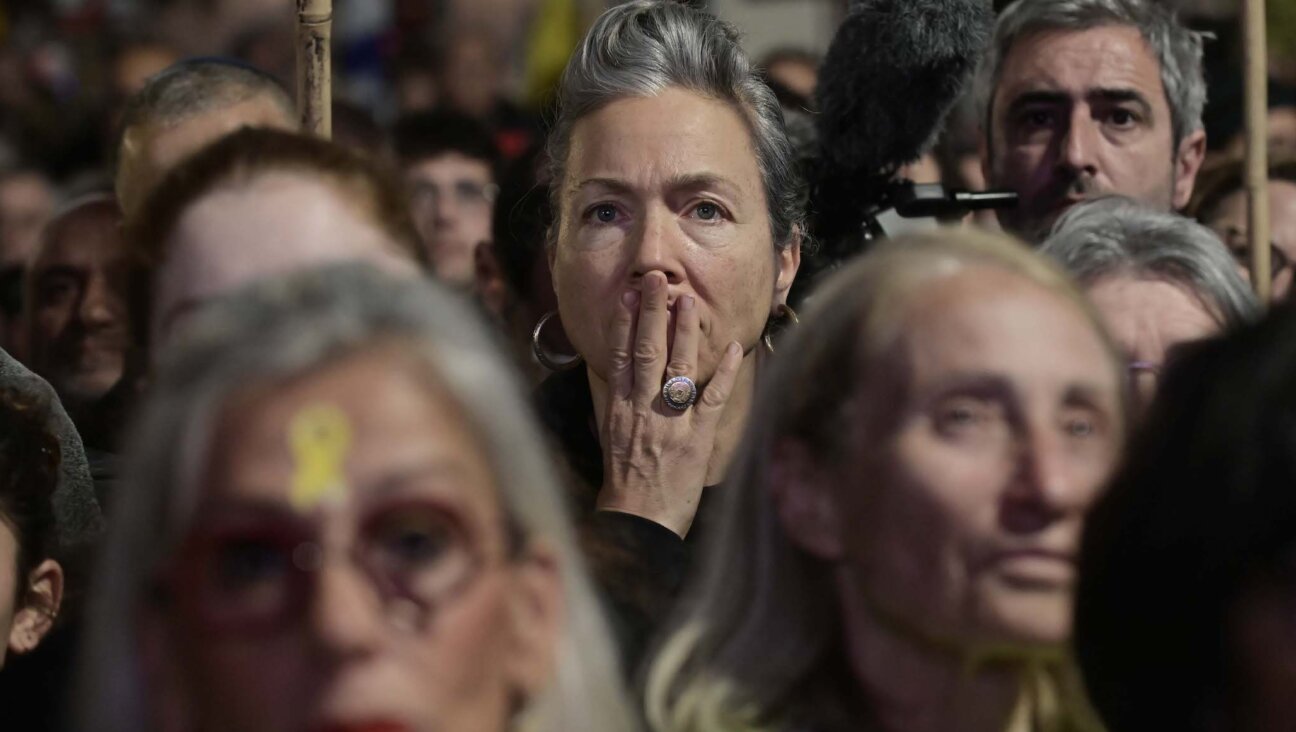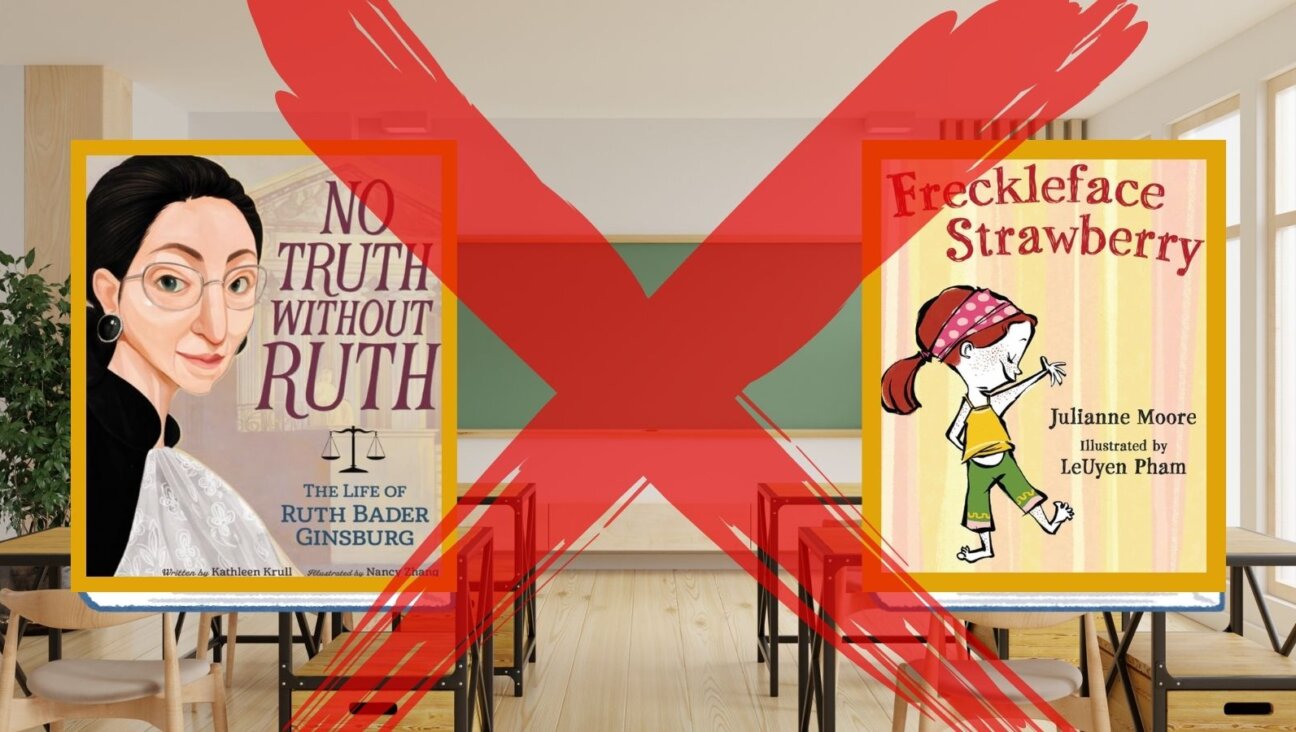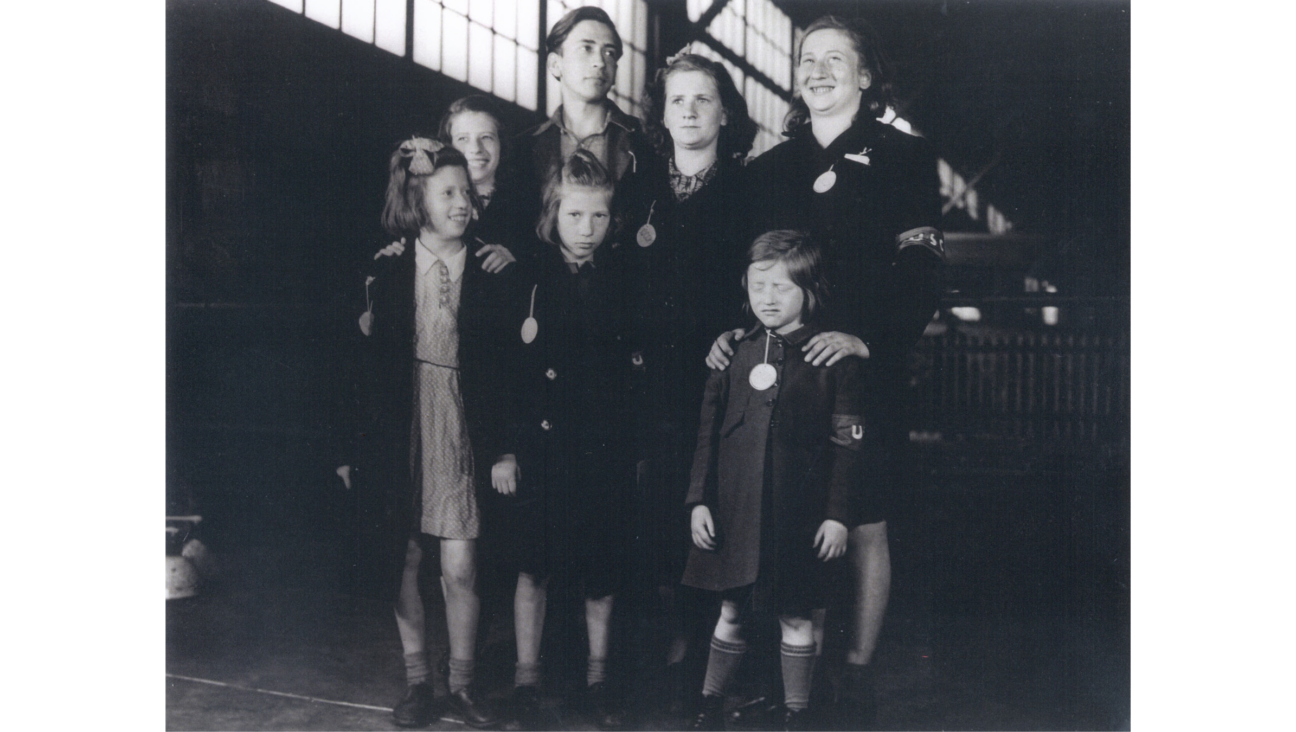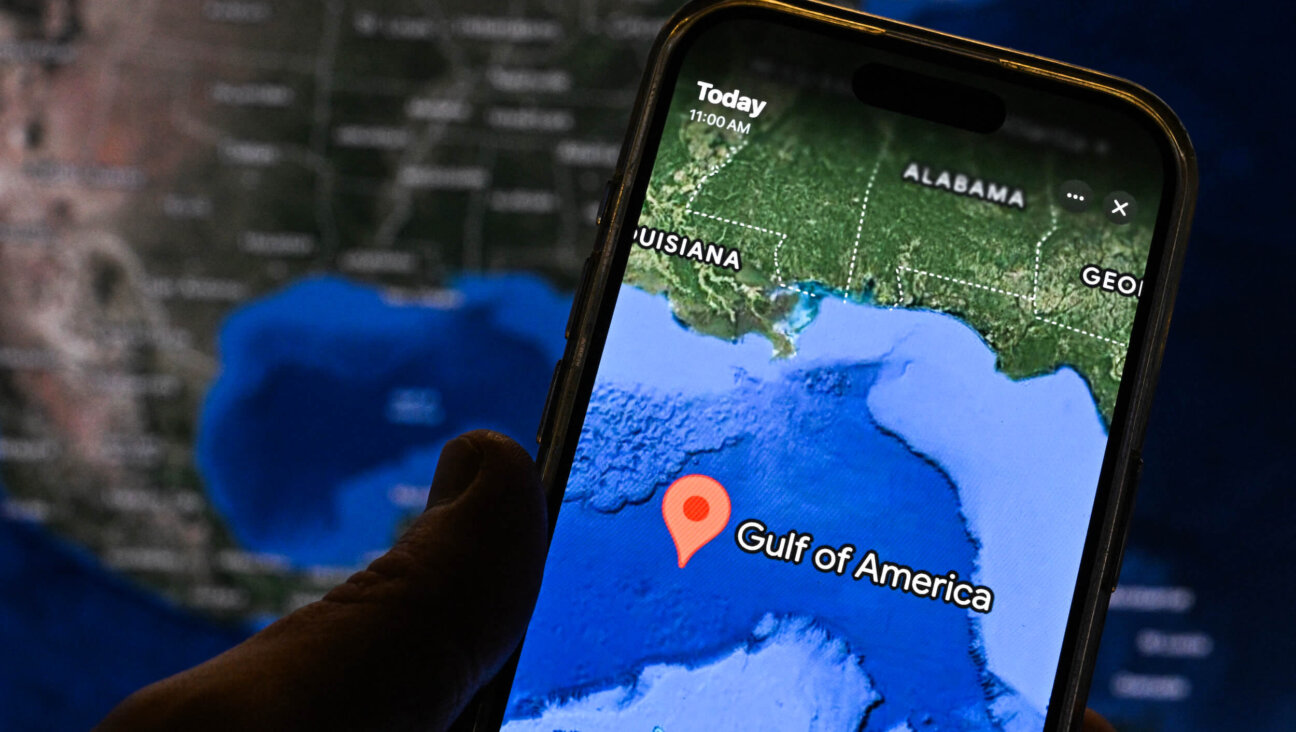For Israelis still displaced from their homes, reclaiming the kitchen can be an act of hope
Asif Culinary Institute’s Open Kitchen Project pairs evacuees with hosts so they can cook the way they used to
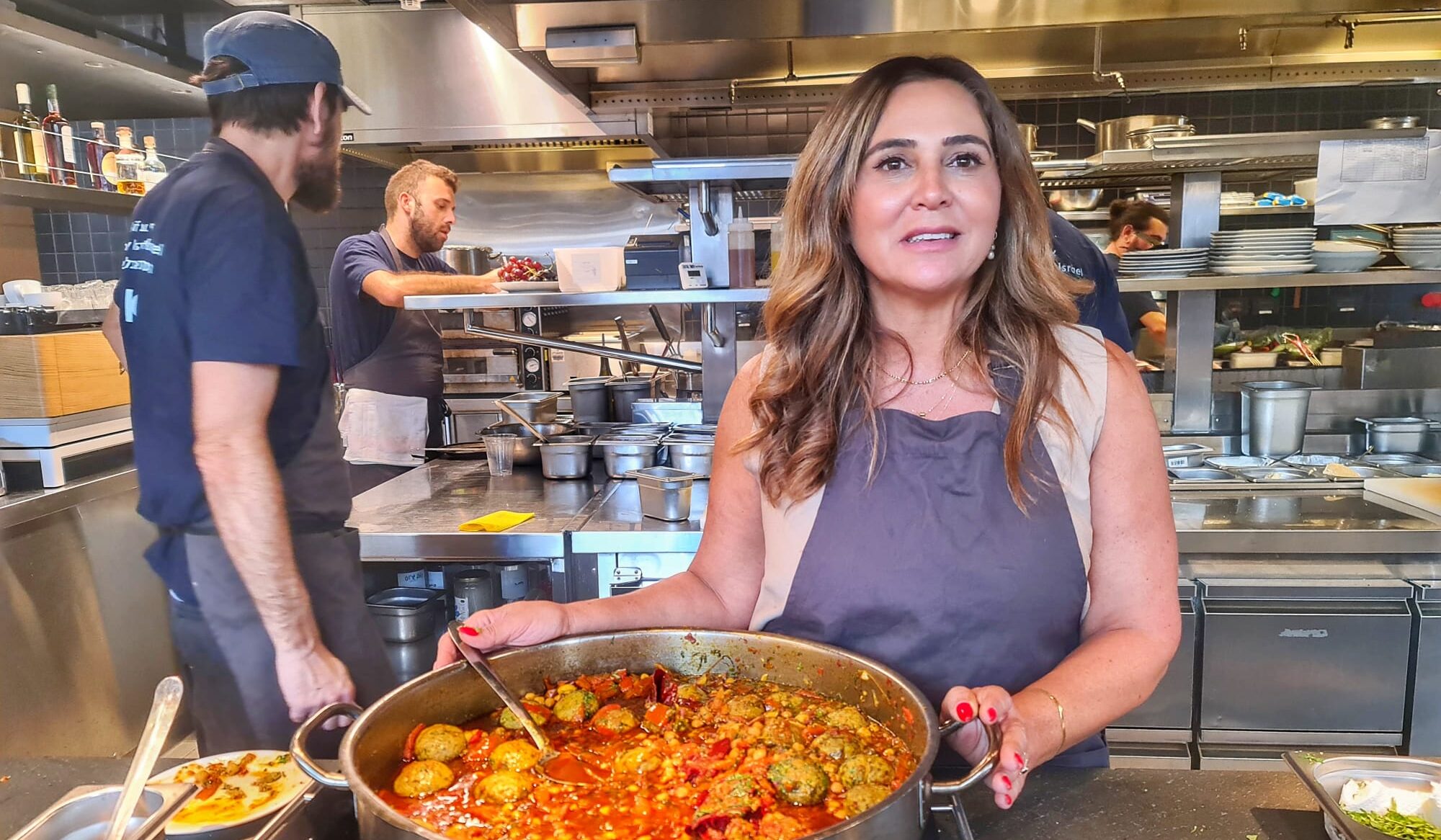
Sharona Dahan cooks at Asif in Tel Aviv, in a rare respite from takeout nearly a year after being evacuated from her home in Sderot, October 2024. (Deborah Danan)
(JTA) — TEL AVIV — With no formal training but with all the aplomb of a seasoned chef, Sharona Dahan serves up plate after plate of Moroccan fish — a dish rooted in her family’s culinary traditions — in the bustling open kitchen of Café Asif in central Tel Aviv.
As a mother of six, Dahan is no stranger to preparing large Shabbat meals in her Sderot home, but until now had never cooked on a restaurant scale. Still, the challenge — like the rocket siren that had sounded in the coastal city earlier in the day — did little to faze her.
Dahan was invited to cook for customers at the cafe, part of the Asif Culinary Institute of Israel, after taking part in the Open Kitchen Project, an initiative matching displaced Israelis with host kitchens.
For 10 months following the Oct. 7 Hamas-led terror attack, Dahan, like tens of thousands of others evacuated from Israel’s embattled border areas, lived in a Tel Aviv hotel. Though the hotel was upscale with food to match, she confessed to being tired of it.
“All I wanted was to cook a simple omelet, just the way I like it,” she said.
Through the project, hosts opened their kitchens, enabling evacuees to prepare meals that carried personal and cultural significance. According to Asif’s director of content, Matan Choufan, who also offered up his home kitchen for Dahan to cook in, the project allowed evacuees to reclaim a sense of normalcy, dignity and identity through the comfort of familiar foods.
“It amazes me how much the kitchen is a key ingredient in creating a sense of security,” he said.
After she was done cooking in his kitchen, Choufan tried to prevent Dahan from washing the dishes. “She turned me away, telling me, ‘For months, I haven’t washed dishes, let me do this.’”
Dahan’s story, along with others, is featured in an exhibition at Asif and curated by Choufan called “The Open Kitchen: Memories From a Home Left Behind.”
The exhibition, which runs until April 2025, explores the emotional significance of home for Israelis directly impacted by Oct. 7 through personal stories, photographs and culinary artifacts. One exhibit, called “Objects,” showcases kitchen utensils and other items that at first appear unremarkable. Taken from evacuated homes, they serve as tangible links to personal histories and traditions, according to the exhibit’s curator, Yifat-Sarah Pearl.
A researcher who explores the intersection of food, art, and cultural identity, Pearl said the ability of food to preserve memory makes it a “conduit for dealing with trauma.” The objects on display function as “transitional objects,” she said, much like a blanket or stuffed animal does for a child, offering psychological comfort during periods of stress or transition.
“We sought out objects connected to food and the kitchen that provoke memories of the entire home, to ease the separation from that home,” Pearl said.
The display includes a pair of oven gloves from a family evacuated from Rosh Hanikra. After moving between various apartments and hotels, they eventually settled in a friend’s home in Jerusalem, bringing the gloves with them. Per family tradition, one member of the family would don them before calling the rest to Friday night dinner.
Some of the objects have darker stories behind them: a cookie tin from the burned home in Nir Oz of multidisciplinary artist Chaim Peri, who was taken hostage and later murdered in Gaza; the chocolate molds of chocolatier Dvir Karp, who was murdered in the same kibbutz on Oct. 7; a jar of pickles from Kibbutz Reim, made a day before the attack and left in the refrigerator for many months.
“These trivial items transformed into symbols of time, and of what was before,” Pearl said.
Pearl credited a jachnun pot with “saving” a family in Be’eri. Yochi Alon brought the jachnun, Yemenite bread baked overnight, into the safe room, keeping her four grandchildren fed and distracted. After being rescued from the safe room more than 30 hours later, the family was evacuated to a hotel near the Dead Sea. Alon brought the jachnun pot with her and later taught her granddaughter how to prepare the dish, fulfilling a promise she had made during their time in the safe room.
Beyond culinary utensils and prepared dishes, upstairs Asif pays homage to the raw materials of food prep with a rooftop farm. The urban agricultural space, overlooked by Tel Aviv’s high-rises, is home to another Oct. 7-related project, “The Soil Will Grow Again” — a nod to the “we will dance again” refrain that emerged as a tribute to those killed at the Nova festival.
Among the crops are potatoes grown by Yarden Tzemach from Kibbutz Be’eri, one of the first residents to return to the kibbutz after the attack, with the aim of reviving its devastated farmlands. Lemongrass was planted as a tribute to the Thai farmworkers of the southern Meshek Havivian farm, who chose to stay in Israel after the Hamas attack even as tens of thousands returned to Thailand at the urging of their government. Michal Havivian, who runs the farm with her husband Boaz, said the prospect of operating the farm without the Thai workers was like “running a hospital without doctors.”
Alongside the lemongrass is another garden bed with edible trees, planted in memory of Canadian-Israeli peace activist Vivian Silver, who was killed on Oct. 7. Silver was a founder of Project Wadi Attir, which merges Bedouin traditions with sustainable agricultural technology and which cultivated a first-of-its-kind edible forest in the Negev.
Back downstairs at the cafe, with the lunch-hour rush winding down, Dahan is preparing for the journey back to Sderot. While she welcomed returning home in August, she now found herself missing the vibrancy of Tel Aviv, noting that Sderot — scarred by nearly two decades of Hamas rocket fire — often felt desolate. When a rocket siren sounded in Tel Aviv earlier that day, Dahan had called the restaurant to confirm her shift was still on and was reassured it was.
“I fell in love with life here,” she said. “Tel Aviv really is a bubble, but in a good way. People here know how to live. Just look how many people are out, who would even imagine there had been a rocket siren earlier?”
A message from our Publisher & CEO Rachel Fishman Feddersen

I hope you appreciated this article. Before you go, I’d like to ask you to please support the Forward’s award-winning, nonprofit journalism so that we can be prepared for whatever news 2025 brings.
At a time when other newsrooms are closing or cutting back, the Forward has removed its paywall and invested additional resources to report on the ground from Israel and around the U.S. on the impact of the war, rising antisemitism and polarized discourse.
Readers like you make it all possible. Support our work by becoming a Forward Member and connect with our journalism and your community.
— Rachel Fishman Feddersen, Publisher and CEO








